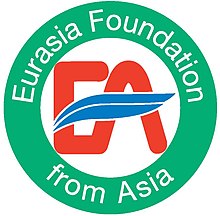
Abstract
North of East Asia: Nivkhi and Siberian Indigeneity and Reformation
In a world where «East Asian Studies» signals a longstanding interplay between the major peoples of China, Japan, and Korea, indigenous peoples from across the region are often embedded as ornament into, rather than being understood as living separately from, the rise of those dominant civilizations. North of East Asia, understandings of Siberian indigenous peoples have long taken different tracks: spread out over an enormous and relatively little populated territory, they posed a significant challenge to Russian colonizers, most notably in the case of the peoples of the Chukotkan Peninsula, never conquered militarily prior to the arrival of communism. Come the twentieth century, founders of the new socialist leviathan showcased indigenous peoples as ancient models for their relative absence of private property and the communal sharing of resources. The result was a markedly different public approach to indigenous peoples as distinct from the Americas, Europe, much of Asia, and beyond. As subjects of elaborate social engineering across the twentieth century, the predicament of North Asian indigenous peoples today speaks to fundamental differences in governmentally across empire and nation, capitalism and communism (and back to capitalism, again).
Bio note
Bruce Grant is Professor and Chair of Anthropology at New York University. A specialist on cultural politics in the former Soviet Union, he has done fieldwork in both Siberia and the Caucasus. He is author of In the Soviet House of Culture: A Century of Perestroikas (Princeton 1995), a study of the Sovietization of an indigenous people on the Russian Pacific coast, and winner of the Prize for Best First Book from the American Ethnological Society; as well as The Captive and the Gift: Cultural Histories of Sovereignty in Russia and the Caucasus (Cornell 2009), on the making of the Caucasus in the Russian popular imagination. He was co-editor of Caucasus Paradigms: Anthropologies, Histories, and the Making of a World Area (LIT 2007) and The Russia Reader: History, Culture, Politics (Duke 2010). He is a past president of the Society for Cultural Anthropology, interdisciplinary wing of the American Anthropological Association; and ASEEES, the Association for Slavic, East European, and Eurasian Studies.
Bruce Grant
Professor and Chair of Anthropology at New York University.



